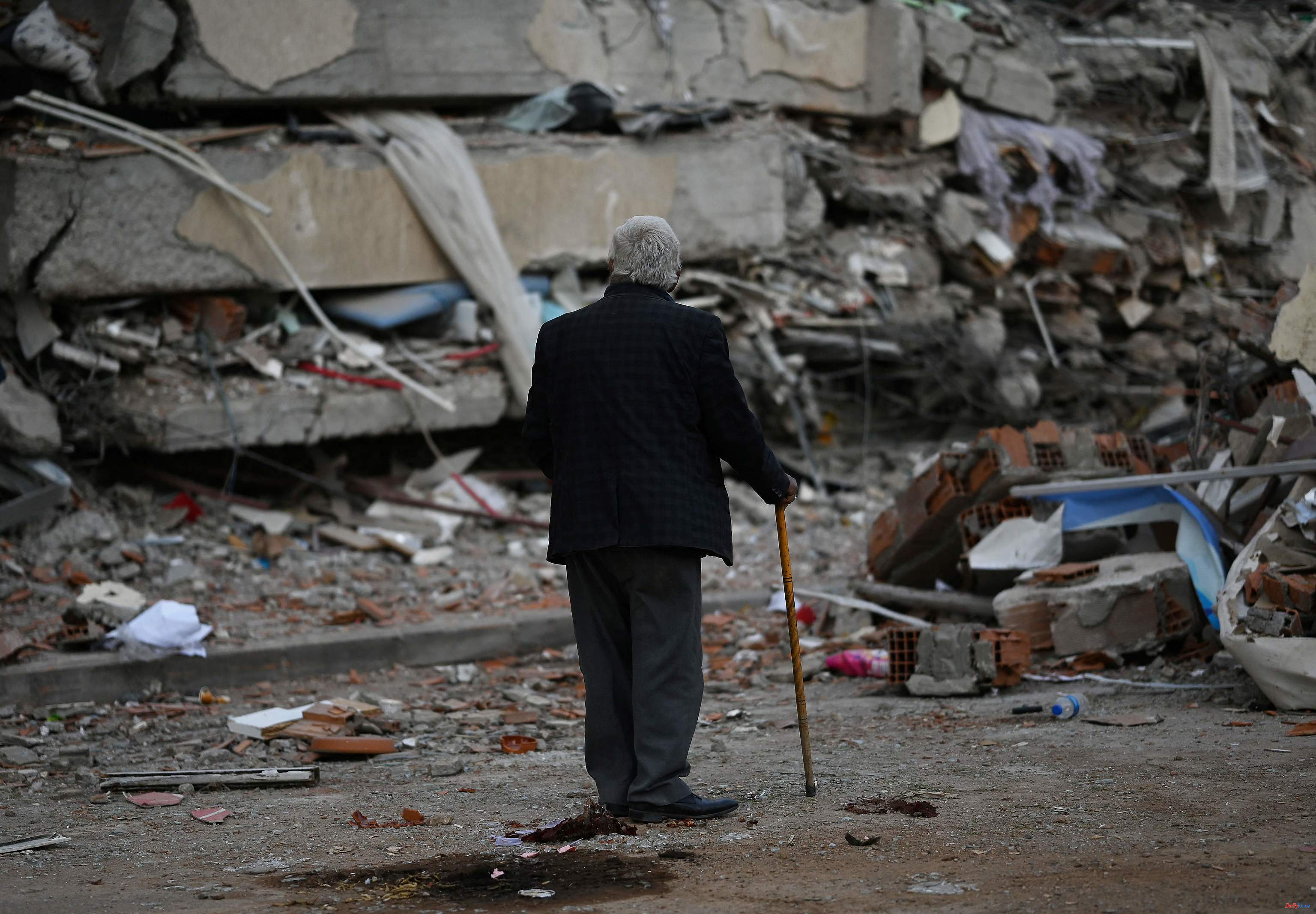A month ago, a devastating earthquake rocked Turkey and Syria. More than 50,000 people died and more than twice as many were injured when the earth trembled. Nearly 24 million people were affected - It is almost half of the entire population of Spain.
In Turkey alone, more than 1.4 million people are still staying in temporary shelters with limited access to essential services such as water, sanitation or medical care, according to official data. "Families forced from their homes by the earthquakes have spent the last four weeks focused on survival, with their lives on hold as the aftershocks continue to rage," said Afshan, UNICEF Regional Director for Europe and Central Asia. Khan. "You have to do what you can to start rebuilding their lives," Khan continues.
"We can't leave. We have our work here. Our plan is to move to a shelter, stay afloat. I don't know what our lives will be like," Malis, 35, told the NGO Save The Children. She and her husband live in a tent in a town on the outskirts of Antioquia. Only ruins remain of her house. In many cases, two or three families live in the same store. "Some families told us they didn't want to shower because they didn't have clean clothes to change into," says Ayse Kocak, area manager for this organization in Hatay.
In this province, Hatay, the horizon is now a line of fake houses. Identical and flimsy. Prefabricated shipping containers or tents populate a landscape where only a handful of buildings remain standing, almost luckily.
In the city of Kahramanmaras, two hours from the epicenter, dozens of people peer into the ruins of their houses to recover something of value before the bulldozers arrive. A tailor hoping to find his sewing machine. A family looking for their bed, better than the mattress that awaits them in a tent. A father searching for his toolbox, perhaps for the endless list of things he'll never be able to fix, no matter how much he wants to. Any object is a treasure when life is reduced to a cloth shelter.
The Turkish government, together with organizations on the ground, has deployed 7,000 psychologists throughout the country and set up 330,000 tents. In parallel, it builds thousands of prefabricated houses. "There will be people who live for months in tents, but the priority is that everyone, that all children have access to essential services" (food, drinking water, sanitation, medical care) explains Jean Benoit Manhes by phone, head of operations for Unicef in Turkey. Among the hopelessness, Manhes points out an optimistic fact. Of the 1,900 children who lost their parents, 1,500 have been able to be reunited with a relative. The lives that were broken are, little by little, sewing up their wounds.
The work ahead is enormous. "In some places, access to water is still guaranteed by solutions that are not sustainable, such as plastic bottles, which in Hatay, for example, are literally everywhere," explains Manhes. A month later, the authorities advise against people drinking the tap water.
In Syria, earthquakes have disrupted supply chains. The few markets that remain standing in barely receive food. People go hungry. Even more than the previous 12 years, in which the war condemned them to have a hole in their stomachs.
Just one month after the earthquake, Amnesty International (AI) has denounced that, between February 9 and 22, the Syrian government blocked the entry of at least 100 trucks carrying essential humanitarian aid (such as food or tents). ) for thousands of civilians affected by the earthquake in Aleppo.
"Even in this moment of desperation, the Syrian government and armed opposition groups have adhered to political considerations and taken advantage of the people's misery to further their own interests," Aya Majzoub, deputy director of the Syrian Arab Republic, said Monday. AI for the Middle East and North Africa.
Doctors Without Borders has also denounced this situation. "The earthquake has increased the difficulties that the population already had to cover their basic needs, including medical care," said Yasser Jamaledin, coordinator of this NGO in Syria a few days ago. The organization, which was already present in the northwest of the country, has distributed essential items here such as mattresses, hygiene items, blankets and cleaning materials and has reinforced mental health support, essential given the impact of the tragedy.
"My daughter no longer sleeps. She screams and thinks she's still under the rubble," said Amani, a 26-year-old Syrian survivor of the earthquake in Aleppo (Syria). She protected her two children with her body. Her testimony has been collected these days by the organization Save The Children. Amani's entire family is now living in a tent without knowing when they will stop. If perhaps, the winter will pass and when the scorching sun arrives again, they will still be exactly there, under a tarpaulin.
As Kathryn Achilles, Communications Director of Save The Children pointed out: "This is a crisis within a crisis. Most of the families most affected have already been forced to flee their homes on multiple occasions and have endured difficult living conditions." .
Back in Turkey, Recep Tayyip Erdogan promised to quickly rebuild the affected areas and carry out surveys to prevent future disasters. For now, however, groups of workers are working tirelessly to erect temporary houses.
It was "like 10 trains passing at the same time, "like a war", "like a wave that jumped". This is how the residents of Buyuknacar, a town just 25 kilometers from the epicenter of the earthquake, of magnitude 7.8, remembered. "We thought that the houses would hold but in a few seconds everything collapsed," Kiymet told Agence France Presse.
Those buildings, some centuries old, have disappeared under a sea of concrete slabs, pieces of wood that were furniture, metal plates that perhaps opened a window. Now there are entire towns that are an infinite window, through which cold, hunger, and fear enter.
According to the criteria of The Trust Project












